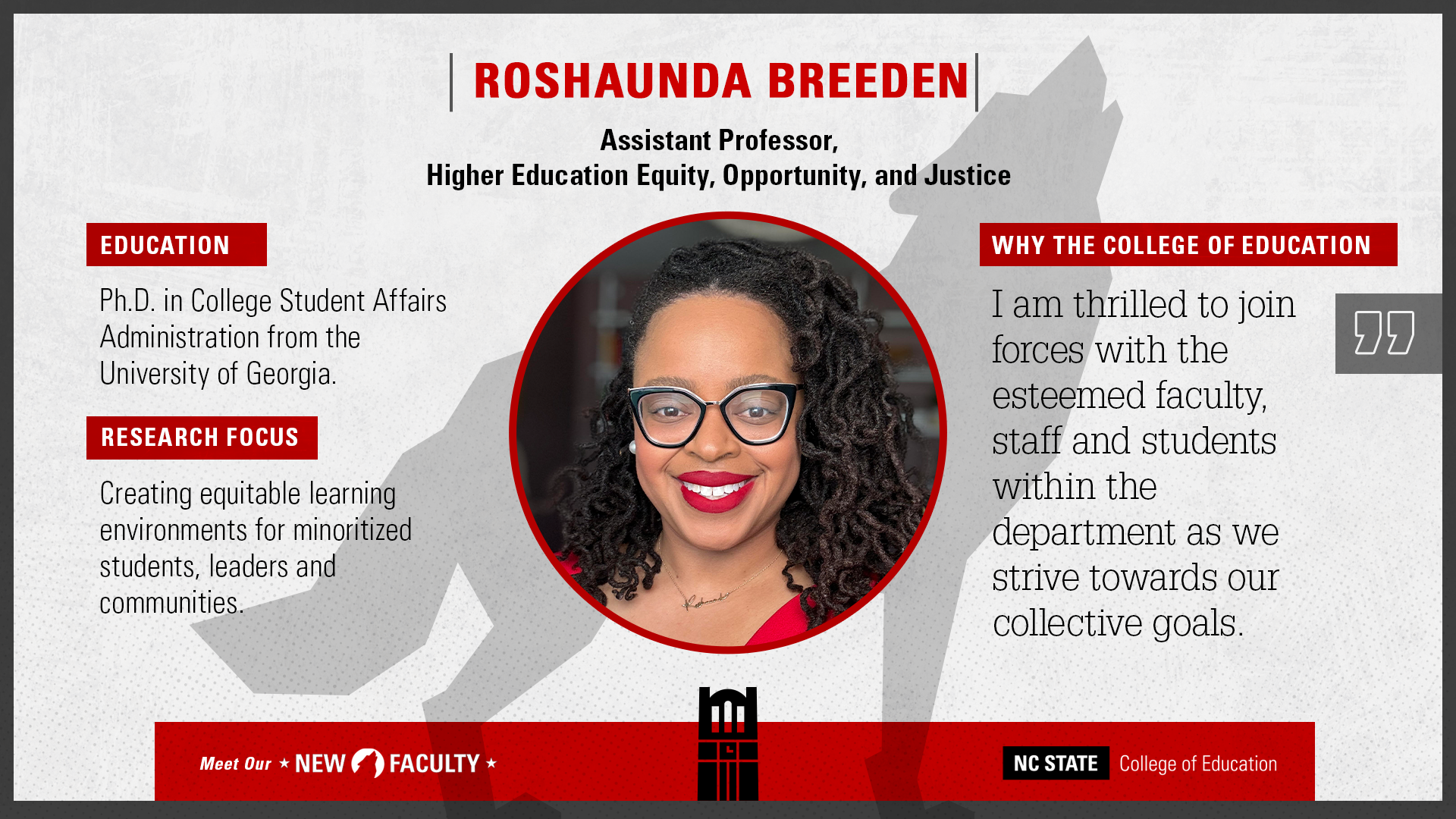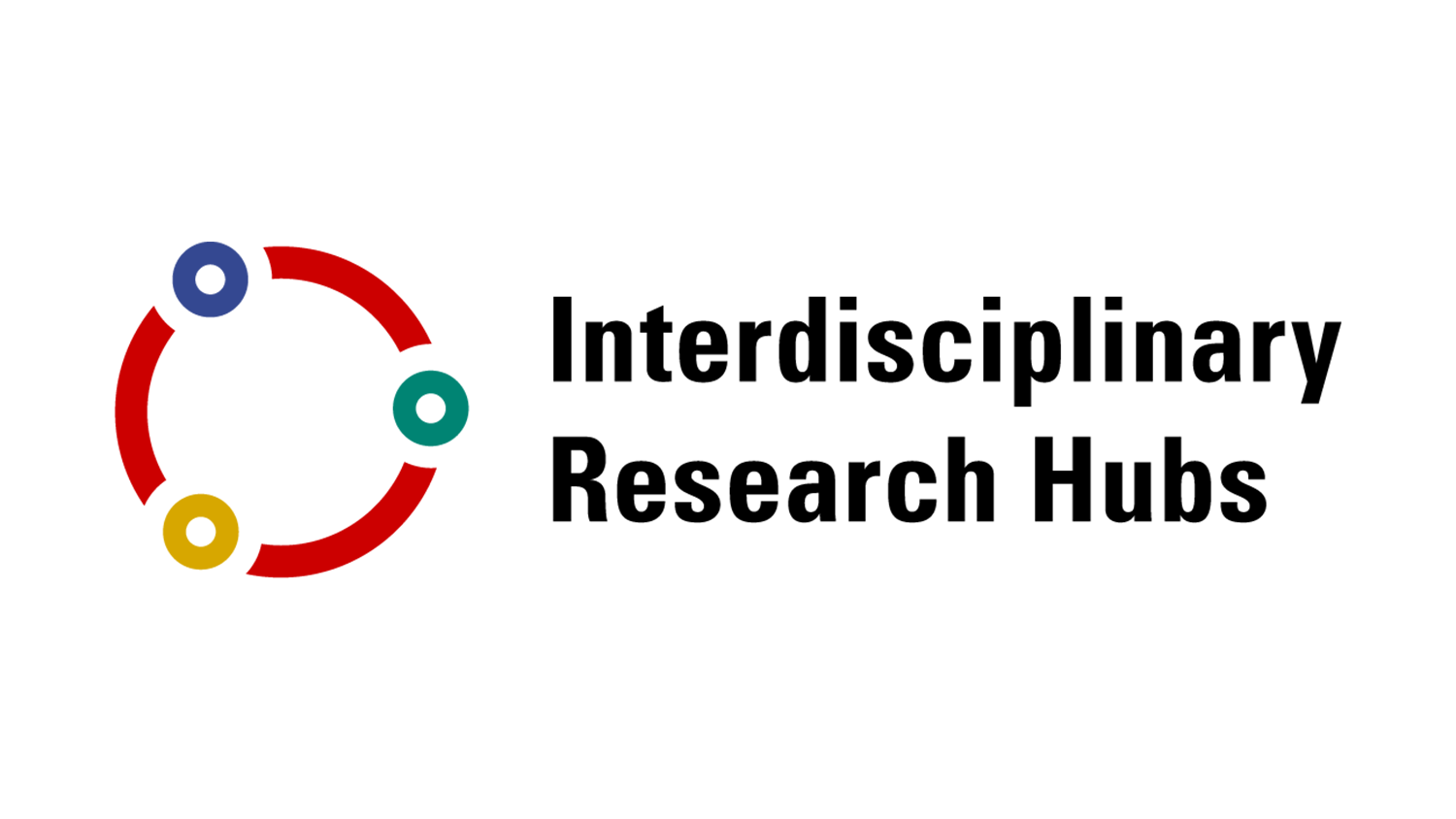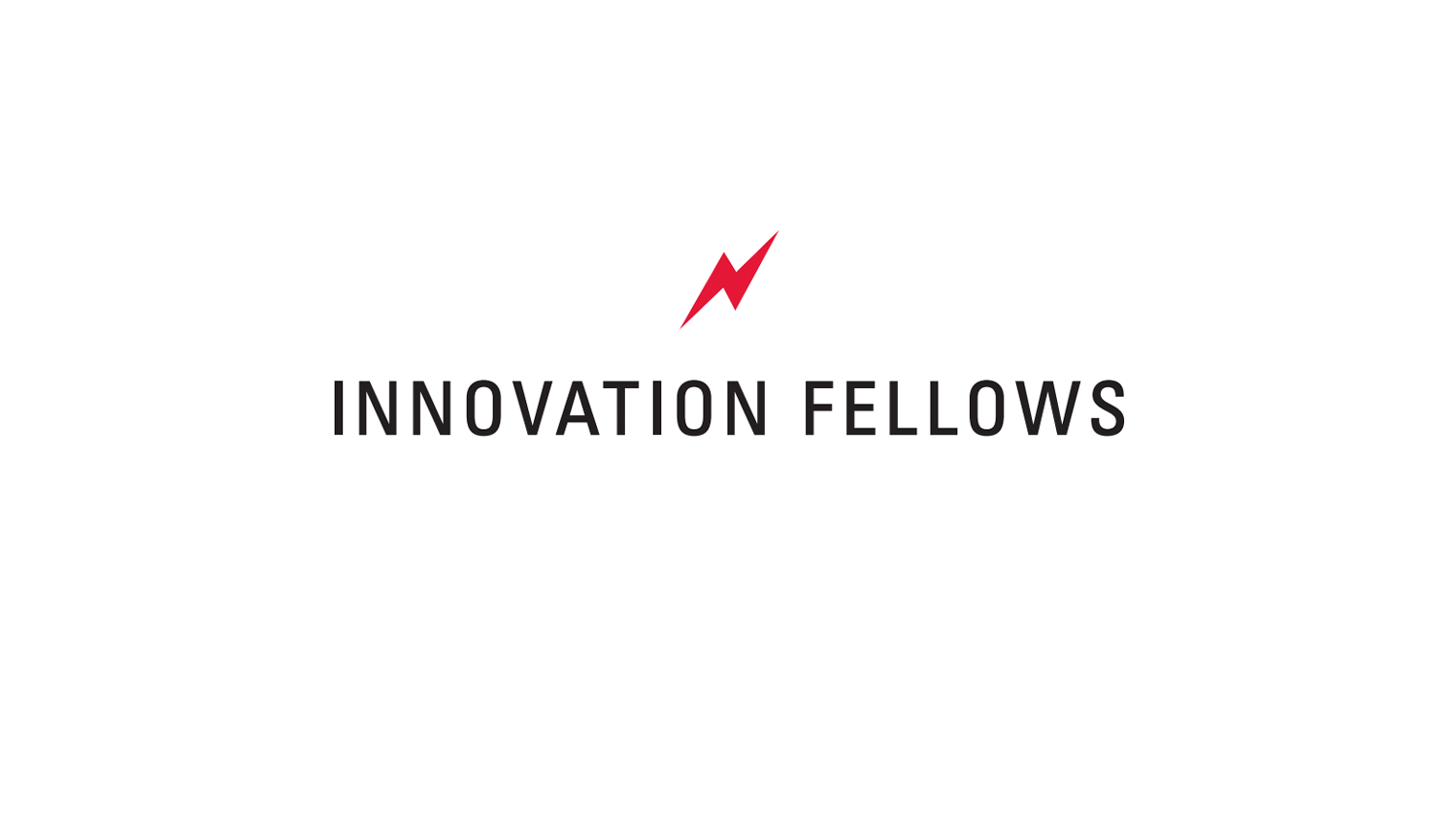Meet Roshaunda Breeden: ‘I Seek to Create a Learning Experience That Centers on the Co-construction of Knowledge’

Roshaunda Breeden will join the NC State College of Education during the 2024-2025 academic year as an assistant professor of higher education opportunity, equity, and justice.
Breeden, who formerly served as an assistant professor of educational leadership within the College of Education at East Carolina University and worked at the Belk Center for Community College Leadership and Research, earned her Ph.D. in College Student Affairs Administration and a certificate in Interdisciplinary Qualitative Studies from the Mary Frances Early College of Education at the University of Georgia.
Learn more about Breeden below:
The following Q&A has been edited for length and clarity.
Why did you choose a career in education?
Growing up in a single-parent, working-class household, I had teachers, school counselors, coaches and administrators who poured into me and helped me see my own potential. When I arrived at NC State, as a first-generation [undergraduate] college student, I met more faculty and staff who believed in me and served as possibility models for me. Therefore, I chose a career in education to help other learners see their potential, and I love this work!
What inspired you to pursue a doctoral degree?
I became restless about a decade into my career as a student affairs professional. I loved learning and reading about higher education, but I didn’t get the time to do that thinking in my day-to-day work. When I did carve out time to read, much of what I was reading was not from a practitioner’s perspective or the perspective of the students I was serving. Therefore, I sought a doctorate so that I could lend my own expertise, study urgent topics and elevate the voices of the communities I care about, with the goal of transforming higher education.
What are your research interests?
My scholarship focuses on creating equitable learning environments for minoritized students, leaders and communities. All my work connects to equity and justice in higher education and, methodologically, I push the bounds of qualitative research.
My research addresses three interconnected lines of inquiry: examining access, persistence, and success for minoritized students, analyzing the experiences of minoritized administrators in higher education, and exploring the relationships between college campuses and their local communities.
What sparked your interest in those topics?
My research interests stem from my personal experiences. As a Black, fat-bodied, generationally poor woman, I often felt invisible, overlooked, ignored and in the shadows of higher education. Due to my past experiences, I am committed to students who reside in the margins of institutional praxis. I center my scholarship around populations historically overlooked in higher education.
What is one moment or project in your academic career that you are particularly proud of?
I am proud of many things in my academic career, including my dissertation research, which was later turned into a stage play. Most recently, I am honored to be a member of the #FatOnCampus research team. This national study uses a photovoice methodology to explore the experiences of fat college students. As a result of the study, we have created an online virtual gallery for stakeholders to engage with collaborators’ stories and photos, along with a playlist, a resource page and an ongoing call for students to share their experiences.
What is your teaching philosophy?
I anchor my teaching philosophy and research on three interrelated ideas: community, critical inquiry and creativity. I desire to create a space that encourages all students to feel courageous enough to share their voice. I try to stimulate an exchange of ideas that thoughtfully challenge what scholars have theorized and consider new ways of thinking based on lived experience and research. And, I facilitate learning by highlighting various pedagogical styles.
I seek to create a learning experience that centers on the co-construction of knowledge, thoughtful inquiry of ideas and meaningful application of theories and concepts.
What do you hope your students will learn from you?
I hope my students, who are already passionate about education, will leverage their passions to engage in research that will make our campuses more equitable for all students. I want them to move away from seeing research as merely a means to an end and view it instead as a transformative catalyst for change.
What do you believe makes an extraordinary educator?
As a professor, I have learned that an extraordinary educator engages in radical care for students. For me, radical care involves not only imparting knowledge but also fostering a supportive and inclusive environment. It means being deeply committed to students’ success and well-being, continually adapting teaching methods to meet diverse learning needs. Radical care also means inspiring and challenging students to think critically, pursue their passions and become lifelong learners. Lastly, radical care entails engaging in self-reflection and professional development to enhance my teaching practice and stay current with educational advancements and trends.
- Categories:


